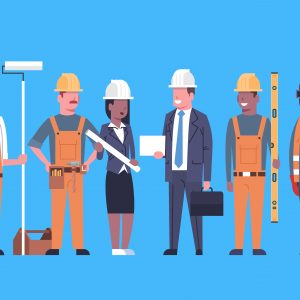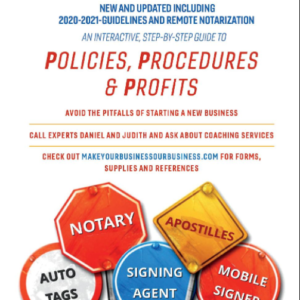
The notary public industry, steeped in centuries-old traditions of authenticating documents and verifying identities, is on the cusp of significant transformation. As artificial intelligence (AI) continues to advance at a rapid pace, its integration into the notary public sector is inevitable. This blog explores how AI will shape the notary public industry over the next ten years, bringing about unprecedented changes and opportunities.
1. Streamlined Identity Verification
One of the core functions of notaries is to verify the identities of individuals. AI-powered facial recognition and biometric verification technologies are set to revolutionize this aspect. These technologies will enable notaries to confirm identities with greater accuracy and efficiency. AI can cross-check facial features, fingerprints, and even voice patterns against vast databases, reducing the risk of fraud and human error.
2. Remote Online Notarization (RON)
The COVID-19 pandemic accelerated the adoption of remote online notarization, and AI is poised to enhance this trend further. AI-driven platforms will facilitate seamless and secure remote notarization processes. Using video conferencing tools integrated with AI, notaries can authenticate documents and verify identities from anywhere in the world. This not only offers convenience but also expands access to notary services, especially in rural or underserved areas.
3. Enhanced Document Analysis
AI’s natural language processing (NLP) capabilities will be instrumental in analyzing and understanding complex legal documents. Notaries often deal with intricate paperwork that requires meticulous scrutiny. AI can quickly scan and interpret documents, flagging inconsistencies, errors, or potential legal issues. This will ensure higher accuracy in notarizations and reduce the time spent on document review.
4. Automated Workflow and Record-Keeping
AI can automate various administrative tasks, such as maintaining records, scheduling appointments, and managing communications. Notaries will benefit from AI-powered software that organizes and stores notarized documents in secure, easily accessible digital formats. This automation will streamline workflows, reduce administrative burdens, and enhance overall productivity.
5. Fraud Detection and Prevention
AI’s ability to detect patterns and anomalies is a powerful tool in combating fraud. Machine learning algorithms can analyze vast amounts of data to identify suspicious activities or fraudulent behavior. In the context of notarization, AI can cross-reference information, detect discrepancies, and alert notaries to potential red flags. This proactive approach to fraud prevention will enhance the integrity and trustworthiness of notarial acts.
6. Education and Training
AI will also play a significant role in the education and training of notaries. Interactive AI-driven training modules can simulate various notarization scenarios, providing notaries with practical experience and improving their skills. Continuous learning platforms powered by AI can keep notaries updated on legal changes, best practices, and emerging technologies.
7. Legal and Ethical Considerations
As AI becomes more integrated into the notary public industry, legal and ethical considerations will arise. Notaries will need to stay informed about evolving regulations and ensure compliance with data privacy laws. Ethical use of AI, transparency in decision-making processes, and safeguarding client information will be paramount. Industry stakeholders must collaborate to establish guidelines and standards for the ethical use of AI in notarization.
8. Job Evolution
The role of notaries will evolve in tandem with technological advancements. While some traditional tasks may become automated, the need for human judgment, empathy, and ethical considerations will remain essential. Notaries will increasingly become technology managers, overseeing AI systems and ensuring their proper functioning. This shift will require notaries to develop new skills and adapt to a changing landscape.
Conclusion
The integration of AI into the notary public industry promises to bring about significant improvements in efficiency, accuracy, and accessibility. Over the next decade, AI will streamline identity verification, enhance document analysis, prevent fraud, and automate administrative tasks. However, the human element of notarial services will remain indispensable, ensuring ethical practices and maintaining trust. As notaries embrace AI, they will play a crucial role in shaping the future of their profession, balancing technological advancements with the timeless values of integrity and reliability.
Daniel C. Lewis resides in Carmel, IN. He was named in 2010 Notary of the Year by the National Notary Association. He was also named in the same year an Honorary Secretary of State by the Indiana Secretary of State. Daniel is currently serving as the Executive Director of the Lewis Notary & Training Services Inc. Daniel is an entrepreneur, writer, video editor, and Keynote Speaker.
Other post by this author…
- Overcoming Distractions During a Notary Assignment: 7 Proven Strategies for Notary Success
- 5 Must-Have AI Tools for Notary Entrepreneurs Should Use Today
- How to obtain an Indiana Title Producers License for Notaries
- What to do in Quarter II for Notary Entrepreneurs
- Do’s and Don’ts of Marketing for Notary Entrepreneurs



